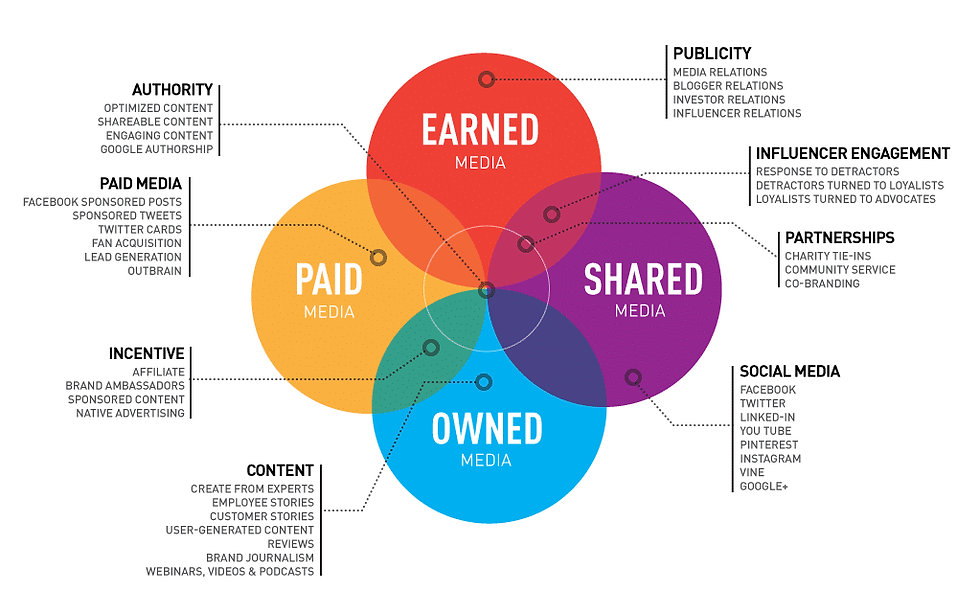Integrated Marketing and the Tao of PESO
- thomas4795
- Jun 6, 2017
- 2 min read

Here’s where I left off in my previous post Integrated Marketing = Marketing Public Relations for the Social Era and how I embrace PESO.
Integrated Marketing in the Social Era is about strategically integrating communications and interactive experiences coordinated with consistency across multiple channels. The plethora of choices can be overwhelming to say the least. I have found most small businesses struggle just keeping their web site updated. Analyzed and optimized content alone can be a big step.
What to do? At the core of all marketing activity there has to be a true understanding of your strategic sweet spot. That’s comprised of real clarity of who the customer is, how you solve a problem or meet a need in a distinctive way, with activities or product that only you can deliver. Armed with a good sense of your strategy (objective + scope + advantage) it’s then about picking the places to put your energy. A truly integrated approach is about defining what channels are integral to your marketing strategy.
The PESO model was developed by Gini Dietrich, well-known industry thought leader and author of Spin Sucks a great read on communications and reputation management. Although this model came from the world of public relations, as a framework it is a potent tool when applied to thinking about integrated marketing communications programming.
This graphic provides a nice illustration of the many activities within the respective Paid, Earned, Shared and Owned media domains and the important overlap within an integrated marketing communications program.

Viewed with an integrated eye:
Paid media (offline and online display advertising, direct & email marketing, pay-per-click search)
Earned media (content fueled Organic search, PR and influencer outreach)
Shared media (company /community co-created content and media; it’s Social)
Owned media (company generated content: blogs, newsletters, white papers, on-site UX, forums,)
I use the term channels to define buckets for marketing activity. Social channels used to mean Facebook, Google+, Twitter and the like. Today I refer to the entire lot as social platforms that include web sites, networks or App stores with large numbers of users. Again, an integrated marketing approach encompasses digital and offline activities. Offline activity channels could include trade shows, speaking engagements, print advertising, offline ads in the form of niche podcast advertising, and offline events in the form of sponsorship or event hosting. All opportunities to insert your brand for the right reasons.
Be it digital or offline the same questions apply: Why do you want to be on Social Media or at an event? Who are you trying to engage? Where do you need to have a presence, which channels? What does the audience need to hear? How are you going be present? Again, really defining your strategic sweet spot up front is essential.
The PESO model resonates with me as it feels comfortable coming from my Marketing Public Relations (MPR) background. Hopefully, as a framework it aids you in your thinking around what integrated marketing activity in the Social Era can look like.
Thanks for reading.


Comments